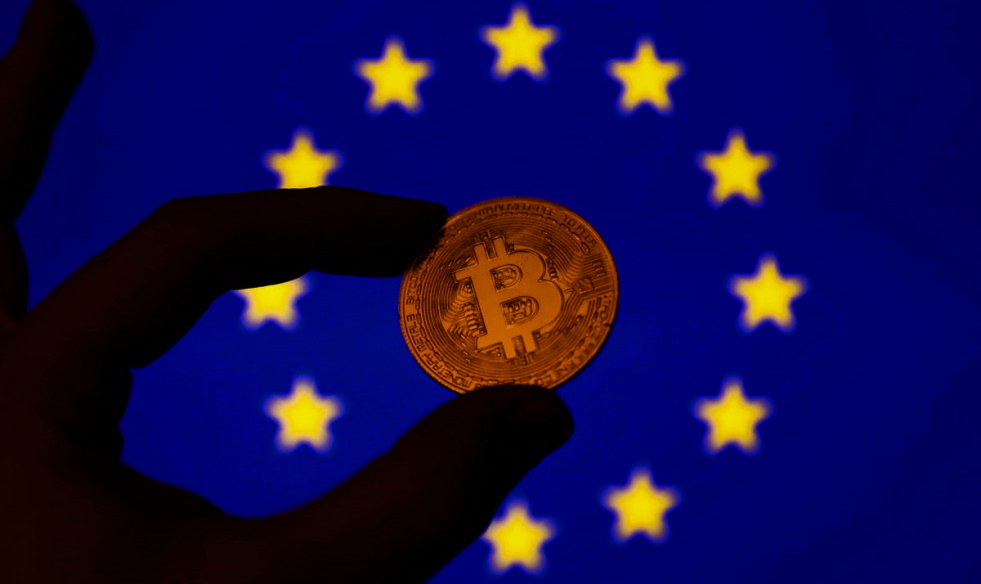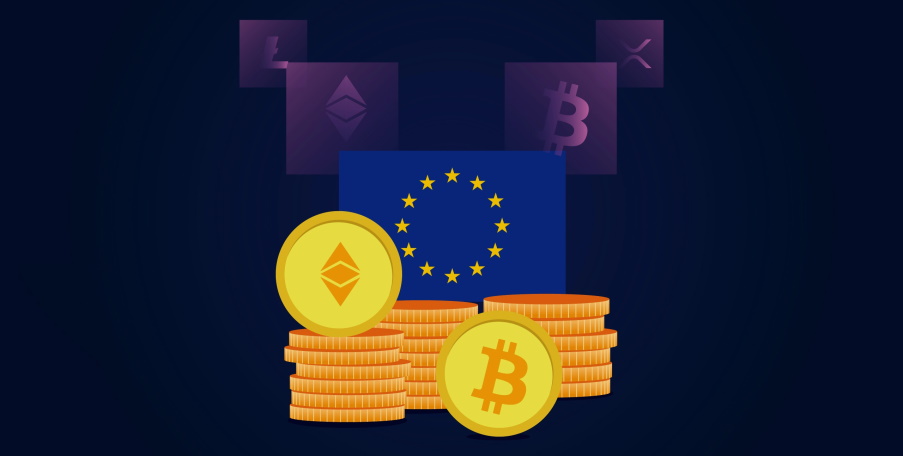- 23/02/2023
- Posted by: Cecil Thomas
- Category: Cryptocurrencies in Europe

Europe has gone from the traditional banking system to the cutting edge of cryptocurrency in a few short years. As countries like Germany, France, and Britain signal their willingness to embrace blockchain technology and its underlying payment network, cryptocurrency is quickly becoming integral to how people conduct global financial transactions. In this blog post, we’ll explore why Europe is leading the charge in bringing cryptocurrencies into mainstream acceptance while exploring some key takeaways that local investors can use on their journeys. From left-leaning governments’ adoption of blockchain-based projects to new regulations allowing crypto trading platforms more leeway with public listing requirements, it’s clear that Europe is fast emerging as a leader in cryptocurrency adoption – join us for an exploration of this exciting new trend!
The state of cryptocurrency adoption in Europe
With countries like France and Germany leading the way, there are now more than six million cryptocurrency users in the European Union alone. This is an encouraging sign for businesses and individuals looking to diversify their investments into digital assets. Furthermore, many European governments have taken steps to regulate cryptocurrencies, making them less risky and more accessible to citizens.
The adoption of cryptocurrencies within Europe can be seen in various industries such as finance, retail, technology, and healthcare. For example, banks across the continent are beginning to embrace blockchain technology through partnerships with cryptocurrency startups, while retailers like Amazon now accept payments in Bitcoin. Additionally, tech companies such as Microsoft and IBM are embracing the use of distributed ledgers for various business applications. Finally, the healthcare industry is making use of blockchain technology to store and transfer medical data in a secure fashion.
Overall, the cryptocurrency space in Europe is becoming increasingly popular as more businesses and individuals learn about the potential benefits these digital assets can offer. With more regulation, further adoption and technological advancement, we expect this trend to only accelerate in the coming years. As such, all investors need to stay informed about the current state of cryptocurrency in Europe so that they can make informed decisions when investing or using digital currencies.

The countries with the highest cryptocurrency adoption rates in Europe
In Lithuania, the Bank of Lithuania has established a special regulatory sandbox for cryptocurrency businesses. As a result, companies can operate in the country with certain legal protections while developing their products or services. Finland is one of the most progressive countries regarding cryptocurrencies, as the government has even launched its initiative to promote the use of virtual currencies called “The Finnish Virtual Currency Initiative”. Last but not least, France is one of the few countries in Europe that allows Initial Coin Offerings (ICOs). The French Financial Market Authority (AMF) regulates ICOs and requires companies to register with them before they can launch an ICO in France. These three countries are leading the way when it comes to cryptocurrency adoption in Europe and will likely continue to do so as more countries follow their lead.
Overall, Europe is becoming increasingly open to the idea of cryptocurrency and blockchain technology. As the trend continues, more European countries will likely begin to embrace cryptocurrencies and blockchain technology in the near future. This could potentially lead to a stronger cryptocurrency market across the continent and offer more opportunities for businesses operating within its borders. In any case, it’s clear that cryptocurrency adoption is on the rise in Europe, and there’s no denying its potential for growth in the coming years.
The awareness about cryptocurrencies has grown exponentially over recent years among Europeans due to its technological advantages and investment potential. Although not all countries are equally open to cryptocurrencies, Europe is generally seen as a cryptocurrency-friendly continent with plenty of opportunities for both individuals and institutions. As a result, cryptocurrency adoption in this region will likely continue to grow at an exponential rate in the coming years as more countries recognize its potential.
Consequently, we believe that investing in cryptocurrencies today can benefit those who understand the technology and the associated risks. Furthermore, as European countries continue to progress towards mainstream acceptance of virtual currencies, investors should take advantage of the growing opportunities while they still exist. With that being said, it’s important to remember that any investment carries inherent risks and should be undertaken with caution. Investors must also keep up-to-date on any changes to the regulatory framework of their country before deciding whether or not to invest. Nevertheless, for those willing to take the risk, cryptocurrencies can be a lucrative investment option with plenty of potential for future growth.

The factors driving cryptocurrency adoption in Europe
In countries with high levels of political and economic uncertainty, such as Turkey and Greece, the increased use of cryptocurrency may be a reflection of citizens seeking alternative financial instruments that are less dependent on government regulation or intervention. Countries with more regulated banking systems—such as Germany, the Netherlands, and France—have also seen an increase in the adoption of cryptocurrencies due to the presence of more secure digital payment methods than those offered by traditional banks. Additionally, European nations have shown increasing interest in blockchain technology for various applications, including smart contracts and digital identity management. This interest has contributed to a growing demand for cryptocurrencies in Europe.
As cryptocurrency usage continues to grow across Europe, governments must ensure appropriate regulations are in place to protect investors and prevent money laundering. Governments are responsible for ensuring that the cryptocurrency market is secure and transparent while providing user consumer protection. Many countries have taken steps to regulate cryptocurrencies, such as introducing specific taxation policies or requiring businesses to register with authorities if they intend to accept virtual currencies as payment.
Ultimately, the widespread adoption of cryptocurrencies in Europe can be attributed to a combination of factors, including political uncertainty, increased interest in blockchain technology, and government efforts to provide regulatory oversight. By understanding these drivers, European nations can continue fostering an environment that embraces innovation while simultaneously protecting consumers from potential risks associated with digital currency usage.

